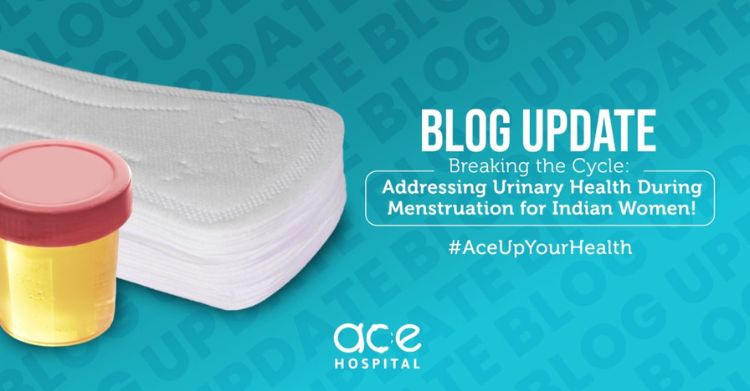Introduction: Summer is a time for fun and relaxation, with longer days and warmer weather encouraging more outdoor activities. However, the season also brings unique health challenges, including increased risks of heat-related illnesses and dehydration. For Ace Hospital, the health and safety of our community during these months is a priority, especially considering the rise in urinary tract infections (UTIs) that often occur. This comprehensive guide will explore how to stay safe and healthy during summer, with a particular focus on preventing and managing UTIs.
Introduction: High cholesterol is a significant health concern that can lead to serious conditions such as heart disease and stroke. Understanding how to manage and reduce cholesterol levels is crucial for maintaining long-term health. In this guide, we will explore actionable steps you can take to lower your cholesterol, backed by medical expertise from Ace Hospital.
Understanding Cholesterol: Cholesterol is a waxy, fat-like substance found in your blood, necessary for building healthy cells. However, high levels of cholesterol can increase the risk of cardiovascular disease. Cholesterol is carried through your blood, attached to proteins called lipoproteins, which include LDL (low-density lipoprotein) and HDL (high-density lipoprotein). Lowering LDL and raising HDL can significantly reduce the risk of plaque buildup in the arteries and related complications.
Step 1: Dietary Changes
Reduce Saturated Fats and Eliminate Trans Fats: Saturated fats, found in red meat and full-fat dairy products, raise your total cholesterol. Decreasing your consumption of these foods can reduce LDL cholesterol. Additionally, eliminating trans fats, often present in margarines and store-bought cookies, cakes, and some snacks, is crucial.
Increase Intake of Omega-3 Fatty Acids: Omega-3s don’t affect LDL cholesterol levels but have heart health benefits, including raising HDL and reducing blood pressure. Foods rich in omega-3 include salmon, mackerel, flaxseeds, and walnuts.
Eat More Soluble Fiber: Soluble fiber can reduce the absorption of cholesterol into your bloodstream. Foods like oatmeal, kidney beans, Brussels sprouts, apples, and pears should be part of your diet.
Step 2: Physical Activity
Exercise Regularly: Regular physical activity can help raise HDL cholesterol. The American Heart Association recommends at least 150 minutes of moderate-intensity aerobic exercise or 75 minutes of vigorous exercise per week.
Consider Resistance Training: Studies suggest that resistance training can also help improve cholesterol levels. Incorporating two days of strength training per week can be beneficial.
Step 3: Lifestyle Modifications
Quit Smoking: Smoking cessation improves your HDL cholesterol level and benefits your heart and lungs.
Limit Alcohol Intake: Alcohol has high sugar and calorie content, which can contribute to higher LDL levels and lower HDL levels if consumed in excess.
Stress Management: Chronic stress may contribute to higher cholesterol levels. Techniques such as mindfulness, yoga, and regular physical activity can reduce stress.
Step 4: Regular Health Screenings
Monitor Your Cholesterol Levels: Regular screening and monitoring of your cholesterol levels can help you and your healthcare provider make informed decisions about your health.
Work with Your Healthcare Provider: Discuss your risks with a healthcare provider at Ace Hospital. They can suggest a personalized plan, which may include medication if lifestyle changes alone are not enough.
Step 5: Medication
Statins: The most common choice for lowering cholesterol. They block a substance your liver needs to make cholesterol.
Other Medications: Depending on your situation, your doctor might also prescribe other types of drugs, like bile acid-binding resins or cholesterol absorption inhibitors.
Conclusion: Managing your cholesterol levels is a critical step toward a healthier life and preventing cardiovascular disease. At Ace Hospital, we are committed to providing our community with the knowledge and resources to manage their health effectively. By following these steps and collaborating with healthcare professionals, you can significantly reduce your cholesterol levels and improve your overall health.
Introduction: As World Malaria Day on April 25th draws near, it’s a crucial time to discuss and disseminate knowledge on the prevention of malaria, a life-threatening disease that affects millions globally each year. At Ace Hospital, our commitment to community health drives us to provide essential information to help you protect yourself and your loved ones from this preventable illness. This guide outlines practical steps individuals and communities can take to reduce the risk of malaria.
In the heart of a society rich with traditions and cultural norms, Indian women navigate a complex landscape of health and wellness, particularly concerning their urinary health. Amidst the vibrancy of India’s heritage, a silence pervades the discussion around menstrual health and its potential complications, such as urinary tract infections (UTIs) and other urological issues. This silence, steeped in societal pressures and stigma, often leaves women grappling with their health concerns in isolation. Ace Hospital, with its specialized focus on urology and nephrology, is leading a campaign to illuminate these issues, advocating for open dialogue, education, and the critical importance of regular check-ups.
In the intricate tapestry of Indian society, where the virtues of strength and resilience are often celebrated, there exists a silent narrative that needs our urgent attention—the overlooked issue of urinary health concerns among women. Despite the prevalence of urinary tract infections (UTIs) and other urological problems, the conversation around these topics remains muted, shadowed by societal norms that unfairly dictate what women can and cannot discuss openly. Ace Hospital is stepping forward to change this narrative, focusing on empowering women through education, awareness, and specialized care in urology and nephrology.





